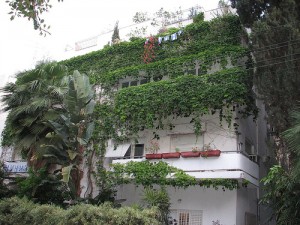Dubai World announced that it would be requesting a six-month delay on paying its debts. Within hours, Dubai’s reputation was being rewritten, and its ambition to be a financial center, building on its historic reputation as a focal point for regional trade, was being recast.
Uncertainty continued on November 30, when the Dubai government said that it would not guarantee Dubai World’s debt. In any event, the larger story has been the nervousness of world financial markets, which are now also evincing worry about the debt of countries like Greece or Ireland.
Within the Middle East, the focus is on the extent of support that Dubai will receive from Abu Dhabi, the neighboring — and richer — member sheikhdom of the United Arab Emirates (UAE), whether other city-states like Bahrain and Qatar are also at risk, and whether Dubai’s links with Iran will change as a result of its financial situation.
Mirages of Prosperity?
There has always been an unreal quality to the glass and steel mini-Manhattans that have emerged along the southern coast of the Persian Gulf during the recent oil price boom. The number of office buildings actually occupied and beach homes sold was never clear. High-spending visitors loved the luxury hotels — Dubai’s self-declared seven-star Burj al-Arab became the iconic emblem of the sheikhdom. But insufferable heat during the summer months and conservative local attitudes toward Western styles of relaxation always limited prospects of the sheikhdoms becoming vacation destinations.
Dubai’s problems have been growing for a year: construction, which once required a reported quarter of the world’s cranes, has slowed drastically. Laborers have returned to their home countries, and local real estate prices have fallen. The story has been similar elsewhere in the Gulf. In recent months, it appeared that the recovery in oil prices from lows of around $40 per barrel a year ago to about $80 had helped the states avert financial disaster. Some individual companies faced difficulties, but the support of governments, particularly for entities that were seen to be government owned, was perceived to be preventing a major shift for the worse. The Dubai government’s failure to back Dubai World has altered that calculation.
A further challenge is the apparent reluctance of Abu Dhabi to move in support of Dubai. With 8 percent of the world’s oil and a sovereign fund of $760 billion, Abu Dhabi could easily cover all of Dubai’s $80 billion in estimated total foreign debt, never mind Dubai World’s $24 billion portion or the $3.5 billion payment due on December 14, which is being delayed. But even though Abu Dhabi provided $10 billion of crucial support in February and an additional $5 billion last week, it now appears to want to teach Dubai a lesson.
Longstanding Rivalry
When the United Arab Emirates was formed thirty-eight years ago last week, on the departure of British forces from the Gulf, Abu Dhabi held “seniority” based on its larger territorial size and its newly acquired oil wealth, discovered in the 1960s. The then rulers, Sheikh Zayed in Abu Dhabi and Sheikh Rashid in Dubai, split the federal government portfolios between the two emirates. Both men have since died, and now Sheikh Zayed’s son Khalifa is president of the UAE, while Sheikh Rashid’s son Muhammad is vice president and prime minister of the federation. But federal lines of authority are opaque, if they exist at all. Muhammad of Dubai has no meaningful access to UAE finances — Abu Dhabi’s wealth is its own, to be parceled out or not as Khalifa thinks fit.
In a further example of the confusion that surrounds UAE leadership, although Muhammad of Dubai is minister of defense, the go-to sheikh on defense matters is Khalifa’s brother, Muhammad bin Zayed, the crown prince of Abu Dhabi. (MbZ, as he is known, visited Washington, DC, in late September, meeting top administration and congressional leaders, as well as President Obama, in what was perceived as an important exchange of views on regional issues that included not only Iran, with which the UAE has territorial disputes, but also Afghanistan, where a small UAE military contingent serves.)
The other five UAE member states — Sharjah, Ras al-Khaimah, Ajman, Umm al-Quwain, and Fujairah — generally stand apart from this rivalry, with their leaders making sure they maintain direct access to political and financial support from Abu Dhabi. Dubai seems, however, to have been operating on the belief that, by taking advantage of its historical role as a regional entrepot and its reputation as a good place for doing business, it could more than make up for its small and rapidly declining oil production.
Dubai World was one of three investment vehicles set up by the Dubai government to achieve this end, with the others being Dubai Holding and the Investment Corporation of Dubai (ICD). As the website of ICD still declares: “By 2010, Dubai will have one of the world’s fastest growing economies, with a sophisticated public mass transportation network, some of the world’s most desirable real estate, and will boast the world’s tallest building.” The first part of this claim seems unlikely: only one line of the metro has been built. And the Burj Dubai (Dubai Tower), lacking tenants, may also be the world’s emptiest building.
Dubai’s Opaque Decisionmaking
Reporting on Sheikh Muhammad in recent days has revealed that his main obsession is horse racing, that his number-two wife is the sister of King Abdullah of Jordan, and that he is “enigmatic.” Sheikh Muhammad has a group of world-class advisors, but it is far from clear whether he has taken their advice. A few days before Dubai World’s request for a delay in debt repayment, a loan default in all but name, Sheikh Muhammad fired the head of the Dubai International Finance Center and several members of the board of the ICD, of which he is chairman. The new members of the ICD board include his sons, Hamdan and Maktoum, only in their twenties and, respectively, the crown prince and joint deputy ruler of Dubai.
Regional Consequences
In the wake of Dubai’s debt decision, world financial markets are adjusting their views of other indebted nations and sovereign entities. In the Gulf region, it seems likely that a divide will emerge between those sheikhdoms like Qatar and Abu Dhabi, which have a stream of revenue from oil and gas, and Dubai and, perhaps, Bahrain, which do not. The timeliness and conditions of any help by Abu Dhabi for Dubai remains unclear. While any delay will be to the embarrassment of Sheikh Muhammad of Dubai, it will carry little domestic political risk. Less than 20 percent of Dubai’s estimated 2.2 million residents are Emirati nationals. Most are comparatively well cushioned against the economic difficulties faced by expatriate workers and companies.
In the case of Bahrain, should financial difficulties worsen, the political dangers are more challenging. The majority Shiite population feels that it has gained little from recent economic growth and is resentful of political discrimination, a sentiment that can be exploited by Shiite coreligionists across the Gulf in Iran. The island state also serves as an important U.S. naval location, hosting the headquarters of the fifth fleet. Apart from U.S. concerns, Saudi Arabia monitors Bahrain closely and would be likely to intervene to stop any economic crisis that might develop.
U.S. Policy
In Washington, recent concerns about Dubai have centered on Iran’s ability to exploit its longstanding commercial links to circumvent economic sanctions. Along these lines, stopping Tehran from receiving high-tech equipment for its missile and nuclear programs via Dubai has become a major area of bilateral cooperation between the United States and the UAE. Most of Iran’s gasoline imports also come via bunkering facilities in Dubai and the emirate of Fujairah. Given Iran’s continuing obstinacy in engaging with the international community to resolve issues associated with its nuclear program, U.S.-led pressure on companies and countries to stop gasoline shipments to the Islamic Republic will likely increase.
So far, Sheikh Muhammad seems to be ignoring reality, saying on December 1 that the media “don’t understand anything.” But this might also be a chance for the U.S. government to offer inducements to Dubai to change its Iran-friendly policy. Many Iranians, including reported hardliners, own property in Dubai. Although Dubai’s local business community will likely want to maintain links with Iran, the frequent use of the emirate’s Jebel Ali port by the U.S. Navy could be reassessed. This is a crisis that also creates an opportunity.
Simon Henderson is the Baker fellow and director of the Gulf and Energy Policy program at the www.WashingtonInstitute.org. This article is reprinted with permission by the Cutting Edge News.





Dubai doesn't have a debt problem, but more like a debt consolidation problem. They keep investing money in outrageous projects that aren't sure to bring money back for the investors. They already have the highest building in the world, the one and only 7 stars hotel… What do they want now? Maybe their own private sun and sky.
Dubai doesn't have a debt problem, but more like a debt consolidation problem. They keep investing money in outrageous projects that aren't sure to bring money back for the investors. They already have the highest building in the world, the one and only 7 stars hotel… What do they want now? Maybe their own private sun and sky.